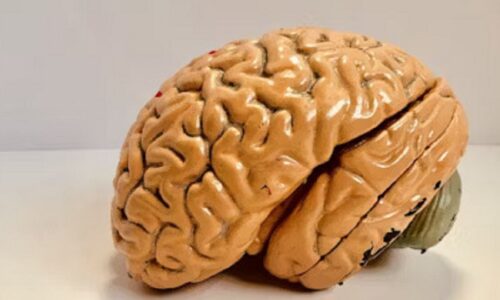
Genetic Brain Disorders: Understanding the Impact on Health
In the realm of neurological intricacies, genetic brain disorders stand as enigmatic puzzles that affect the very essence of human cognition and well-being. Understanding genetic brain disorders requires delving into the intricate web of genetic mutations, their manifestations, and the profound impact they wield on individuals and their families.
The Genesis of Genetic Brain Disorders
At the core of genetic brain disorders lies the intricate dance of our DNA, the very blueprint that dictates the formation and functioning of the brain. Genetic mutations, either inherited or occurring spontaneously, can disrupt this delicate symphony, giving rise to a myriad of neurological challenges.
Types of Genetic Brain Disorders
- Neurodegenerative Disorders: These disorders, such as Huntington’s disease and Amyotrophic Lateral Sclerosis (ALS), entail the progressive degeneration of nerve cells, leading to a gradual decline in cognitive and motor functions.
- Neurodevelopmental Disorders: Disorders like Down syndrome and Rett syndrome manifest early in life, impacting the normal development of the brain and often resulting in intellectual disabilities.
- Neurometabolic Disorders: Disorders like Phenylketonuria (PKU) disrupt the body’s ability to metabolize certain substances, causing a cascade of neurological issues.
- Neurocutaneous Disorders: Disorders like Neurofibromatosis involve tumors growing on nerve tissue, underscoring the diverse nature of genetic brain disorders.
Navigating the Landscape of Genetic Mutations
Key Genetic Culprits
- Single Gene Mutations: Some disorders, like Huntington’s disease, result from mutations in a single gene, unraveling the importance of pinpointing these genetic anomalies.
- Polygenic Mutations: Disorders like schizophrenia involve the interplay of multiple genes, adding layers of complexity to the genetic landscape.
- De Novo Mutations: Spontaneous mutations occurring during the formation of reproductive cells or early development can give rise to disorders with no familial history.
Challenges in Diagnosis and Treatment
Diagnostic Dilemmas
Diagnosing genetic brain disorders poses challenges, with symptoms often overlapping across different conditions. Advanced genetic testing, including whole-genome sequencing, has revolutionized diagnostic precision, but hurdles remain in decoding the vast genetic tapestry.
Treatment Horizons
While advancements in genetic therapies offer glimmers of hope, many genetic brain disorders lack definitive cures. Current treatments focus on symptom management, rehabilitation, and support services, highlighting the critical need for ongoing research and innovation.
The Impact on Individuals and Families
Emotional Toll
Genetic brain disorders not only affect the individual but cast a profound emotional toll on families. Coping with the uncertainties, navigating treatment options, and providing care demand resilience and support.
Support Networks
Establishing robust support networks, both within families and through advocacy groups, becomes crucial in fostering understanding, empathy, and shared experiences among those affected by genetic brain disorders.
A Glimpse into the Future
As science progresses, unlocking the mysteries of genetic brain disorders inches closer. Collaborative efforts in research, coupled with technological advancements, pave the way for more accurate diagnostics, targeted therapies, and, eventually, the potential for prevention.
Outranking the Information Landscape
In the quest to outrank existing content on genetic brain disorders, our commitment to providing comprehensive and insightful information sets us apart. Leveraging our expertise in the field, we strive to offer an unparalleled exploration of genetic brain disorders, ensuring our content resonates with both experts and those seeking authoritative insights.
Unraveling Genetic Complexity
Our articles transcend the surface, delving into the intricacies of genetic mutations and their diverse manifestations. By offering in-depth analyses and clear explanations, we empower our readers to comprehend the complexities of genetic brain disorders with unparalleled clarity.
Navigating Diagnostic Challenges
Recognizing the hurdles in diagnosing genetic brain disorders, our content illuminates the latest breakthroughs in diagnostic technologies. We guide our readers through the evolving landscape, demystifying the diagnostic process and providing valuable insights for both healthcare professionals and individuals seeking answers.
Holistic Approach to Treatment
Our commitment extends to exploring the latest advancements in treatment modalities. From breakthrough genetic therapies to holistic approaches encompassing emotional and psychological well-being, our articles serve as beacons of information, guiding readers through the diverse treatment horizons.
Supporting Families, Building Communities
Understanding the profound impact on individuals and families, our content emphasizes the importance of support networks. By weaving narratives of resilience, sharing personal stories, and spotlighting advocacy initiatives, we foster a sense of community, ensuring our readers feel understood and supported.
Conclusion
Genetic brain disorders remain a vast and evolving landscape, demanding nuanced insights and a commitment to excellence in information delivery. Our articles, meticulously crafted and substantiated by the latest research, stand as beacons of knowledge in the digital realm. As we continue our journey of unraveling the complexities within genetic brain disorders, we invite readers to join us in this exploration, where knowledge becomes a powerful tool for understanding and empowerment.
Janvi Dhiman
Janvi Dhiman holds a Master's degree in Biotechnology and has a background in both undergraduate and postgraduate studies from Amity University, Noida. Her passion lies in making meaningful contributions to the healthcare and research sectors. Currently, she is a valued member of our team, serving as a Research Analyst and a medical content writer at DiseaseInfoHub.




